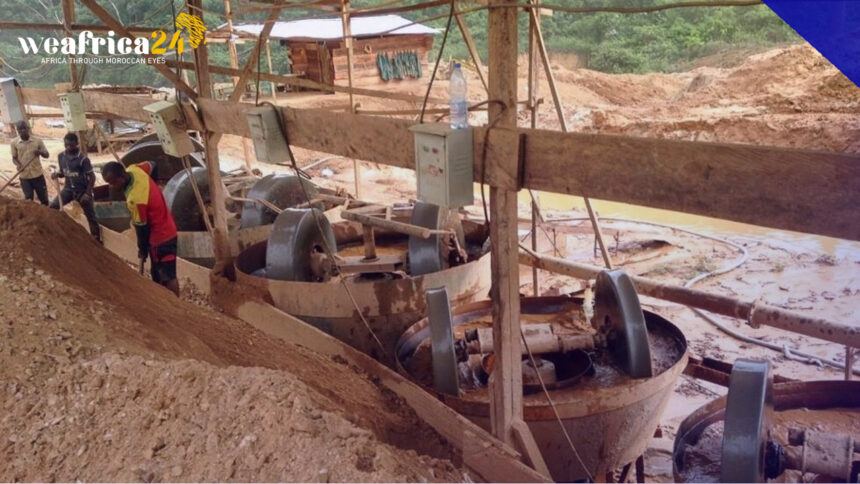The ongoing year-end parliamentary session in Cameroon has provided the government with the opportunity to unveil its proposed legislation for a new mining code. Successfully passed in both the National Assembly and the Senate, the code now awaits promulgation.
The previous code, enacted in 2016, had a brief seven-year tenure, with its implementing decree never seeing publication. Meanwhile, the emergence of the National Mining Company (Sonamines) in late 2020 necessitated a revised legal framework.
Addressing parliamentarians, interim Minister of Mines, Professor Fuh Calistus Gentry, emphasized that this new code, adopted in November, “places Sonamines at the forefront of mining activities.” It designates Sonamines as the sole authority for the purchase and marketing of gold and diamonds, becoming the indispensable intermediary for all production-sharing agreements.
Cameroon boasts substantial, underutilized resources, including gold, diamonds, clay, limestone, iron, and copper. Demand for exploration permits spans all ten regions, yet the sector’s contribution to national wealth remains modest. The mining industry is predominantly artisanal and informal.
Among the criticisms directed at the new mining code, economist Louis-Marie Kakdeu, Vice President of the SDF party, laments the persistence of a centralization model that inadequately involves local communities. He also criticizes the export-oriented approach, emphasizing the need for the code to incentivize local processing and industrial development.
Justin Kamga, representing the association Foder (Forests and Rural Development), deplores the lack of consultation with on-the-ground stakeholders during the code’s formulation. He expresses hope that civil society can secure representation on the board of directors of Sonamines.
As Cameroon positions Sonamines as a key player in the mining landscape, the debate surrounding the new mining code underscores the importance of balancing centralized control with local involvement, fostering sustainable development, and ensuring meaningful engagement with all relevant stakeholders.







